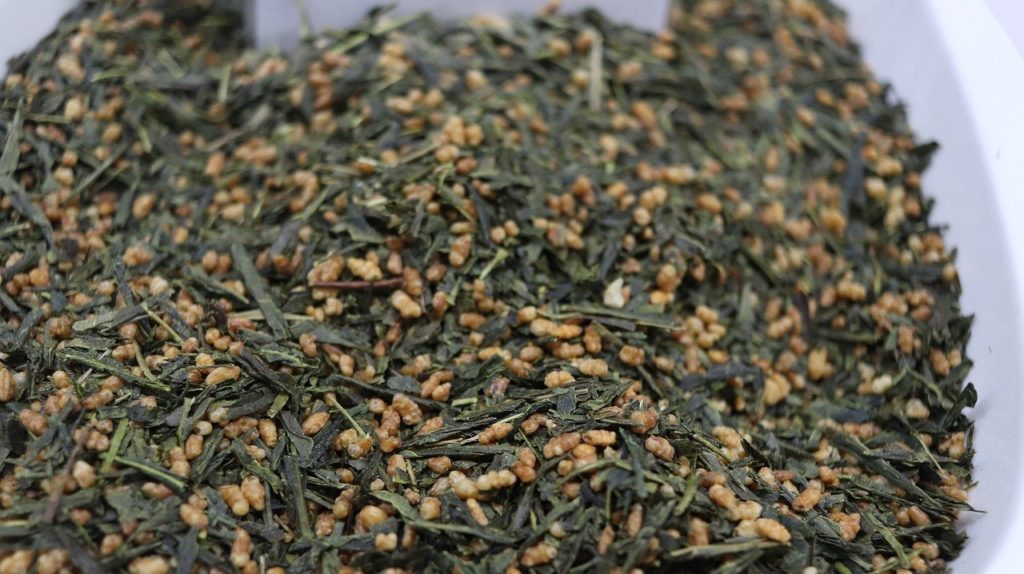Over the years, green tea has grown in popularity both in the United States and worldwide. It maintains its well-established popularity in Asian countries, reflected in its 15% share of total worldwide tea consumption. Forecasters predict the green tea market will continue to grow year to year in the coming years. At least in part, this growth can likely be attributed to the several health benefits of green tea. Although green tea extracts have also grown in popularity, this article takes the perspective of brewed green tea leaves.
To better understand the health benefits of green tea, let’s take a high-level view of the science involved.
Most of the literature on green tea will likely include the words antioxidants, free radicals, flavonoids, catechins, and theanine. Let’s take a simplified approach in defining these key terms.
Science has found that green tea can help protect our bodies against free radicals.
So what are free radicals?
A very basic scientific definition would state that free radicals are molecules or atoms that have unpaired electrons.
When your body is exposed to free radicals, they try to strip electrons from your cells to replace their missing ones. Without these electrons, the cells in your body will not work properly, leading to accelerated aging and illnesses.
When your body is exposed to free radicals, they try to strip electrons from your cells to replace their missing ones. Without these electrons, the cells in your body will not work properly, leading to accelerated aging and illnesses.
How do free radicals reach our cells?
Exposure to toxins such as cigarette smoke, air pollution, and ultraviolet rays, among many others, can lead to the production of free radicals in your body. However, your body’s normal processes can also produce free radicals. For example, when your body breaks down the food you eat, free radicals are produced.
So, what can we do to fight these free radicals?
Here is where antioxidants come into play. Antioxidants play an important role in protecting our bodies against these free radicals. Without getting too deep into the scientific details, antioxidants protect your cells from the damage free radicals can cause. Antioxidants include vitamin C, vitamin E, and zinc. You can find antioxidants in most fruits and vegetables and many spices. Flavonoids are also considered antioxidants.
What are Flavonoids?
Flavonoids are plant chemicals that support your immune system and provide anti-inflammatory benefits. Catechins are a type of flavonoid and are present in plant-based foods and drinks. You can find them in foods such as cocoa, apples, and berries, but they are found most abundantly in tea leaves. Green tea leaves have the highest concentration of catechins relative to other teas. Scientists believe catechins are directly linked to the health benefits of green tea.
What other compounds are responsible for the health benefits of green tea?
Theanine can also be found in green tea and also provides health benefits. It is an amino acid, which are organic compounds that help your body to function properly.
Green tea is also rich in essential vitamins and minerals. For example, a cup of matcha green tea has a healthy dose of Vitamin C, 13% of the recommended daily amount.
Now that we have a general understanding of its beneficial compounds, what are the specific health benefits of green tea?
1. Studies have found that drinking green tea can positively affect your blood flow and lower cholesterol levels.
It helps regulate your blood vessels’ reaction to emotional and physical stress. There have also been indications that drinking green tea can decrease LDL cholesterol levels. The evidence that green tea, at higher levels of consumption, may protect against heart disease has been reflected in a number of studies.
2. Some health benefits of green tea can also come from theanine.
It can have a positive effect on cognitive function, specifically focus. There have also been many possible health benefits revealed by early studies that provide hope but require additional investigation. The following are some examples:
- Improved sleep quality
- Enhanced memory and learning capabilities
- Improvements in memory for those with age-related memory decline
- Decreased symptoms of depression
- Decreased stress
3. Drinking green tea may also decrease age-related bone loss and protect against osteoporosis and bone fractures.
A study has shown that catechins in green tea can promote bone development and formation while slowing down its breakdown, usually found in the aging population.
4. Some studies have found a possible link between green tea and increases in metabolism or weight loss.
These studies have shown that drinking green tea might result in slight increases in metabolism (the rate at which our bodies burn calories), possibly leading to some weight loss. Other studies have shown that green tea can increase the amount of energy we use, and not necessarily the rate, thereby increasing the number of calories and amount of fat burned.
5. There are also possible oral health benefits of green tea.
A study conducted in 2016 found that drinking green tea can help prevent cavities, gum disease, and bad breath. Green tea can aid in prevention of these oral issues because it helps control the bacteria levels in your mouth. Periodontal health, the condition of the structures and supports surrounding the teeth, can affect your overall health as well. Advanced periodontal disease has been linked to health issues such as cardiovascular disease and diabetes, among others.
How Much Should I Drink to Enjoy the Health Benefits of Green Tea?
It is difficult to determine the optimal daily amount of green tea to drink as it will differ from person to person. The variety of green tea and the brewing method also play factors.
It also depends on the specific health benefit you are seeking. Some believe you should drink more than one cup daily. Some experts recommend drinking three to five cups each day.
However, conversely, you should be careful to drink too much green tea because, at high amounts, it can negatively affect your sleep, increase anxiety, and affect your body’s ability to absorb iron. To prevent its effects on iron absorption, try to drink your cups of green tea spaced away from mealtimes.
In general, the more green tea you drink, the more health benefits you have the likelihood of enjoying. However, consider the caffeine effects when determining the daily amount you drink.
Most importantly, if you are on medication or are pregnant or nursing, consult with your healthcare provider about possible side effects, interactions, and optimal or maximum amounts to drink.
To gain the health benefits of green tea, what’s the best way to prepare it?
Scientists have found that steeping a tea bag for two to three minutes releases 62% of catechins, 76% of caffeine, and 80% of theanine from the tea leaves. Longer brew times lead to a higher concentration of healthy compounds in the tea, but it also results in more caffeine and a stronger or bitter taste, which may or may not be your preference.
The best-case scenario is to enjoy the flavor AND health benefits of green tea simultaneously.

Balancing the taste and health benefits of green tea starts with the water.
Fresh well-aerated water rich in minerals is the ideal base for the perfect cup of green tea. Next to that, the right water temperature is crucial to the brewing process. Following the following tips for brewing your loose green tea leaves in a teapot or infuser:
- Boil water to 170 to 180 degrees.
- Blanch the tea leaves by pouring enough water over them so they are just covered. Immediately pour out the water. This process will uncurl and clean the tea leaves, allowing the optimal extraction of flavor and health benefits.
- Pour hot water in the teapot (or over the infuser) and steep for 15-30 seconds. Sample the tea and re-steep for 15-30 seconds longer each time until you find your ideal taste.
The “perfect” cup of green tea will differ based on personal preference and require some trial and error, particularly as you try different variations with distinct flavor profiles.
Find more tips for brewing the perfect cup of tea here.
Peruse our affordable, freshly sourced premium green tea selection. We would love to help you along your green tea journey so you can enjoy both the taste and health benefits offered through a freshly steeped cup of premium green tea. Please contact us, and one of our tea experts will be happy to answer any questions and make recommendations.



